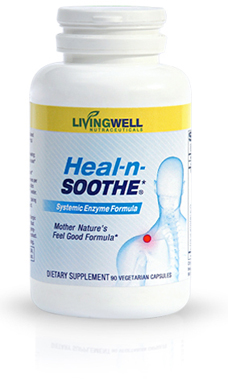 Have you ever wondered if the foods you eat and the supplements you take are good (or toxic) for your dog?
Have you ever wondered if the foods you eat and the supplements you take are good (or toxic) for your dog?
This question came to my mind a few weeks back when a friend’s dog – a black lab named Dax – got really sick, really fast.
I won’t paint the picture for you (it’s not pretty) Dax was going outside every half an hour to do his business. By midnight he began to run out of fluids.
My friend rushed Dax to a 24 hour pet emergency clinic where he was immediately put on an IV (to replace the fluids).
Turns out he had a serious bacterial infection in his gut. Because of this, his immune system rushed almost all of his red blood cells to his stomach to fight it off (which explains the frequent bathroom breaks).
I don’t remember the exact numbers, but Dax’s red blood cell count plummeted to under 10% of normal levels. The vet said Dax wouldn’t have made it through the night if it wasn’t for the IV.
Three days – and $2,000 later – Dax was well enough to go home.
The cause?
Dax probably had a compromised immune system before this, but the vets think onions pushed him over the edge. Yes, onions. While chopping up some up for dinner, my friend dropped half an onion on the ground (which Dax quickly gulped down).
Onions are of the healthiest foods for people (click here to read about the healing benefits of onions.) But because they lower red blood cells in dogs, cats, and even horses, you should not give them to your pet.
Very ODD Treatment…
Anyways, among a few medications, the doctor prescribed a very odd follow up treatment. Yogurt.
Why yogurt?
During treatment, the veterinarians gave Dax antibiotics to fight the bacterial infection. Along with killing the bad bacteria in his stomach, these antibiotics also wiped out the good bacteria. It’s well known in people that yogurt restores gut health because it is chock full of good bacteria…so why not dogs?
Another natural substance that works wonders in humans and dogs alike is systemic proteolytic enzymes.
They work by breaking down proteins (called fibrin) in the blood that causes inflammation. And since excessive inflammation is linked from everything from chronic pain, to heart disease, and cancer…anything you do to reduce inflammation is a good thing.
You can read more about the healing power of systemic proteolytic enzymes here.
But Do They REALLY Work in Dogs?
Writing in the July 2012 issue of The Whole Dog Journal, Mary Strauss reports,
“…holistic veterinarians may prescribe systemic enzyme therapy for arthritis and other conditions involving inflammation; injuries; skin and coat problems; cancer; autoimmune disorders; and before and after surgery to reduce swelling, bruising, and pain.”i
And goes on to state dosage recommendations:
“3 tablets once a day for dogs weighing 51-100 pounds, 2 tablets daily for dogs weighing 21 to 50 pounds, and 1 tablet daily for dogs weighing 13 to 20 pounds. Higher doses are recommended for a variety of conditions.”
As you can imagine, running canine clinical trials isn’t high on the list of researchers, but I was able to find one interesting study to support the use of systemic proteolytic enzymes in dogs.
It dates back to 1964. Researchers reporting in the Canadian Journal of Physiology and Pharmacology used proteolytic enzymes in dogs and found they were “safe and efficient…in systemic thrombolytic therapy”.ii
What is systemic thrombolytic therapy?
It involves breaking up blood clots that impede the flow of blood. This may be why holistic veterinarians prescribe systemic enzyme therapy to dogs for arthritis and other conditions involving inflammation.
Because blocking blood flow (with a blood clot or otherwise) to an injured area can slow down healing. This happens because fresh, nutrient-rich blood gets trapped out. And inflammation (and other toxins) get trapped in.
Removing these obstructions restores healthy circulation.
If you suspect your pooch is in pain, Heal-N-Soothe may help them in a big way…
It contains a unique systemic proteolytic enzyme blend that helps breaking down fibrin in the blood that causes inflammation. Over 50,000 people have turned to Heal-N-Soothe for relief from pain. Your dog will love it too.
Click Here Now to Find Out More About Proteolytic Enzymes & Heal N Soothe
References



I have used this successfully with my son’s Rottweiler. I’d like to know if it can be used on cats. I have my cat back on Cosequin which has helped in the past but doesn’t seem to be doing any good this time. She’s only 12 but it is painful to watch her walk. Let me know if Heal N Soothe if ok for cats.